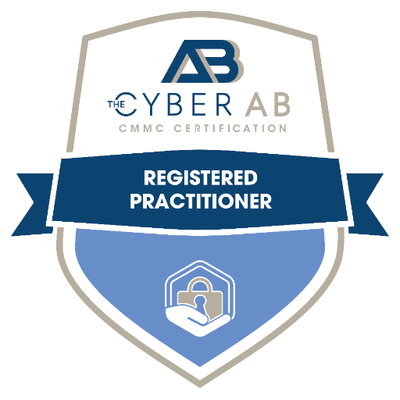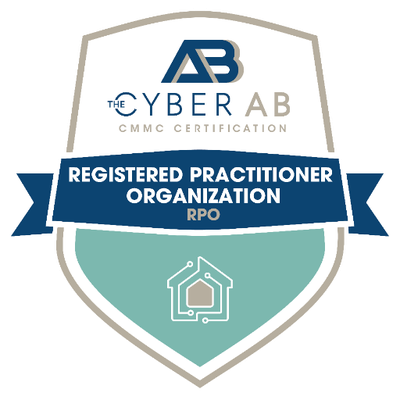If your business has achieved certification for ISO 9001, ISO/IEC 27001, AS9100, or similar standards, is it also necessary for you to achieve CMMC compliance for cybersecurity? The short answer is: It depends. Read on for a rundown of what companies need to achieve CMMC compliance and why, and how your other certifications might fit into the picture.
> Looking for help achieving CMMC compliance? Contact us for help <
Does Your Business Need to Achieve CMMC Compliance?
It’s one of the most common questions we get in cybersecurity: If my company already has an information security management systems (ISMS) like ISO 27001 certification, does that make us CMMC compliant, too? How about a quality management system (QMS) like ISO 9001 or AS9100 — do these count as CMMC compliance? And if not, can they help us get there?
Fortunately, there’s an easy way to answer this question. If your company handles any kind of data from the United States Department of Defense (DoD) in any way whatsoever, then yes, you will need to achieve some level of CMMC compliance, no matter what other ISMS you have in place or quality standards you’ve achieved.
The good news is that being compliant with those other standards will ultimately help you achieve CMMC compliance, and may well cut the costs of doing so, too. Here’s what you need to know.
Determining Your Level of CMMC Compliance
How can you tell whether your company needs to achieve CMMC compliance in the first place? The Cybersecurity Maturity Model Certification (CMMC) 2.0 provides a cybersecurity standard for all organizations that handle DoD data, whether directly or indirectly. This includes not only defense contractors but any organization that handles DoD data, even third- and fourth-party vendors.
This CMMC is designed to protect what it defines as Federal Contract Information (FCI), which is mostly limited to the handling of contracts, or Controlled Unclassified Information (CUI). A huge category that includes any potentially sensitive data, CUI can include emails, receipts, research, engineering plans, or anything else that may have an individual’s personally identifiable information (PII).
Based on these definitions, CMMC compliance is split into three levels:
- CMMC Level 1 (Foundational), which applies to any company that handles FCI
- CMMC Level 2 (Advanced), which applies to companies that work with CUI
- CMMC Level 3 (Expert), which applies to sensitive CUI that involves national security
How Is CMMC Compliance Different from Implementing a QMS or ISMS?
If your business has already achieved ISO 9001, ISO/IEC 27001, or AS9100, then you’ll have a great head start for achieving CMMC compliance. As comprehensive frameworks that cover everything from handling and storing digital data to outlining key process improvements to maximize efficiency, these standards cover a lot of the same ground as CMMC 2.0.
Yet they’re not quite the same thing. Here’s how they’re different — and how they’ll ultimately help you achieve the level of CMMC compliance you need.
Quality Management Systems (QMS)
ISO 9001 and AS9100 are quality management systems used to ensure that all services, processes, customer service, and other business essentials meet a single high standard. Short for International Standard for Quality, ISO is a universal QMS, used around the world. AS9100 is specific to the aerospace industry, which means there’s a good chance of crossover with CMMC compliance.
Focusing not on data security but operational processes, these standards can’t be substituted for CMMC compliance. But they are designed to help businesses meet larger regulatory concerns. So, having them in place will provide an excellent foundation from which to launch a CMMC compliance strategy.
Information Security Management Systems (ISMS)
ISO/IEC 27001 is an information security management system (ISMS) that’s widely used internationally and in the United States. Like the NIST SP 800-171 — which was developed by the U.S. government — it sets standards for preserving the integrity and confidentiality of data. It also assures that a business has a sound strategy for risk management, emergency preparedness, and other essentials.
Just as with quality management systems, neither ISO 27001, NIST SP 800-171, nor any other well-known cybersecurity framework can substitute for CMMC compliance. However, they do cover many of the same details. CMMC is built upon NIST SP 800-171. So, businesses with that ISMS in place will already have much of what they need for CMMC compliance, such as documentation, quality initiatives, staffing training protocols, and more.
Where CMMC Fits In
Fitting into none of the categories above, CMMC compliance is its own beast. It’s also much more comprehensive and stringent than these other standards. It imposes the same cybersecurity standards as NIST SP 800-171 Rev. 2, but adds many other requirements and protocols, as well.
Yet there’s still plenty of common ground, as we’ve seen above. Having a QMS in place will help companies achieve CMMC compliance because it will define a company’s risk management needs, which may include the safekeeping of data.
And because it specifically outlines strategies for the safekeeping and handling of data, having implemented an ISMS will help even more — particularly if it’s a NIST framework.
Achieve CMMC Compliance with Omnistruct
Does your business need to achieve CMMC compliance? At Omnistruct, we’ll help you understand how to meet this important goal, how to leverage any existing QMS and ISMS efforts to do so, and how to meet any other cybersecurity obligations you may have, too. Schedule a consultation today to get started.



